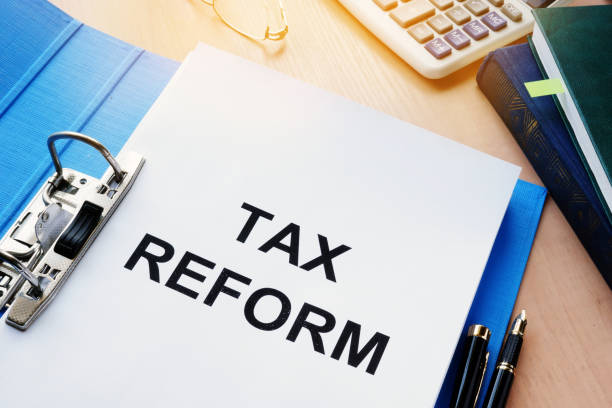Nigeria’s ongoing tax reform agenda promises significant relief for businesses by eliminating input Value Added Tax (VAT) costs across entire value chains and streamlining compliance obligations. According to policymakers, these changes are aimed at lowering operational expenses, encouraging business expansion, and driving private sector-led growth.

Speaking at the Nigerian Economic Society Group private sector forum, Taiwo Oyedele, Chairman of the Presidential Committee on Fiscal Policy and Tax Reforms, emphasized that the overarching objective is to create a tax environment that supports—rather than stifles—economic activity.
“Taxes are a byproduct of economic growth. Without jobs or income, effective tax policies hold little relevance,” Oyedele stated, stressing the need to shift focus from tax collection to economic development.
Historically, Nigeria’s tax system has placed a disproportionate emphasis on revenue generation at the expense of business viability. Oyedele noted that a more strategic approach involves enabling businesses to grow sustainably, thereby naturally broadening the tax base.
A key feature of the reform is the removal of VAT on critical inputs across sectors such as food, healthcare, housing, education, and transportation. Unlike other jurisdictions—such as Ghana—where businesses can recover VAT on input costs, Nigerian companies have historically borne these expenses directly. The reforms aim to correct this imbalance, enhancing business competitiveness and profitability.
“In Nigeria, whether you’re producing goods or delivering services, VAT on capital expenditure is a sunk cost. That’s changing,” Oyedele explained.
By granting VAT recovery rights, businesses are expected to experience reduced cost burdens. Over time, market forces are likely to translate these savings into lower prices for consumers, thereby supporting inflation management and improving affordability.
“Ultimately, what affects businesses affects consumers. Lower business costs can mean lower prices, even if not immediately,” he added.
The reform framework positions the private sector as the primary engine of economic growth and a sustainable tax base. From SMEs to large corporates, the anticipated reduction in tax-related bottlenecks is expected to free up capital for investment, expansion, and job creation.
With Nigeria’s tax-to-GDP ratio still below 10%—one of the lowest globally—these reforms represent a strategic pivot towards long-term economic competitiveness, increased formalisation, and greater attractiveness to both domestic and international investors.
Beyond tax policy, Oyedele highlighted the need to address structural challenges such as multiple taxation, poor infrastructure, and high logistics costs—all of which distort market efficiencies and erode business margins. For example, the cost differential between rural and urban food prices is largely attributable to man-made inefficiencies rather than supply constraints.
“We’ve halted monetary expansion; now the priority must be to lower business costs through coherent fiscal policy and coordinated reforms,” he said.
The new tax regime, expected to take effect in January, offers different benefits across the business landscape. For corporates, it means reduced compliance complexity and a lighter tax load. For SMEs, it offers much-needed relief and liquidity for reinvestment. For consumers, it presents the possibility of more competitive pricing over time.
Femi Egbesola, President of the Association of Small Business Owners of Nigeria (ASBON), echoed these sentiments, warning that without addressing arbitrary levies and informal taxation—especially at the local government level—the intended benefits of the reforms may not fully materialize for micro and nano businesses, which constitute the backbone of the MSME sector.
“Policies must be inclusive. MSMEs can’t just be passive recipients of reform—they must be part of the design and implementation process,” Egbesola advised.
As Nigeria advances its tax reform agenda, the expectation is that a more efficient, equitable, and growth-friendly tax system will not only provide relief to businesses but also help rebuild investor confidence and accelerate the country’s journey towards economic diversification.
For professional advice on Accountancy, Transfer Pricing, Tax, Assurance, Outsourcing, online accounting support, Company Registration, and CAC matters, please contact Inner Konsult Ltd at www.innerkonsult.com at Lagos, Ogun state Nigeria offices. You can also reach us via WhatsApp at +2348038460036.
